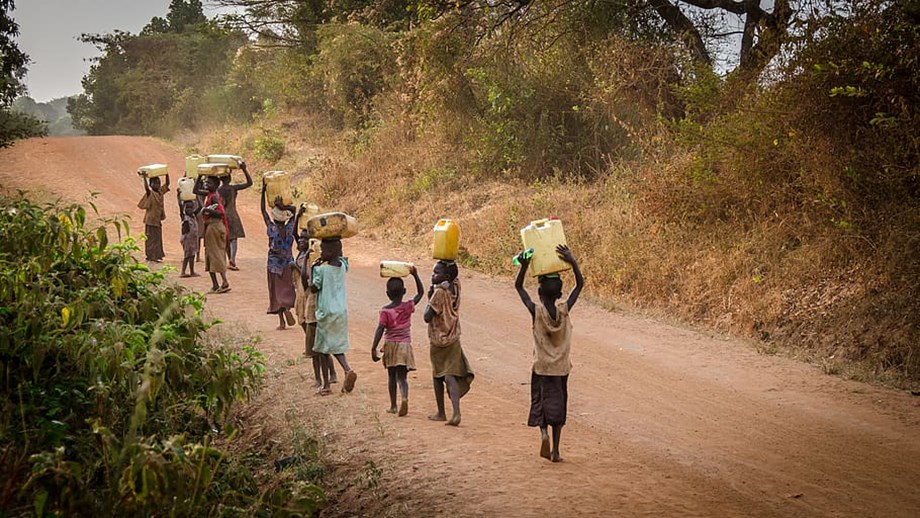Ladies and also women in charge of bring water in 7 out of 10 homes without products on facilities, according to initial comprehensive evaluation of sex inequalities in alcohol consumption water, cleanliness, and also health (LAUNDRY) in homes
.
Internationally, females are probably to be in charge of bring water for homes, while women are almost two times as most likely as kids to birth the duty, and also invest even more time doing it daily, according to a brand-new record launched today by UNICEF and also that.
.
Development on family alcohol consumption water, cleanliness and also health (LAUNDRY) 2000-2022: Unique concentrate on sex — which offers the initial comprehensive evaluation of sex inequalities in clean– likewise keeps in mind that females and also women are most likely to really feel harmful making use of a commode beyond the residence and also overmuch really feel the influence of absence of health.
.
” Every action a lady requires to gather water is an action far from discovering, play, and also safety and security,” claimed Cecilia Sharp, UNICEF Supervisor of Clean and also CEED. “Dangerous water, bathrooms, and also handwashing in your home robs women of their possibility, concessions their wellness, and also bolsters cycles of destitution. Replying to women’ demands in the style and also application of clean programs is essential to getting to global accessibility to water and also cleanliness and also accomplishing sex equal rights and also empowerment.”
.
According to the record, worldwide, 1.8 billion individuals stay in homes without water products on the facilities. Ladies and also women aged 15 and also older are mainly in charge of water collection in 7 out of 10 such homes, compared to 3 in 10 homes for their male peers. Women under 15 (7 %) are likewise most likely than kids under 15 (4 %) to bring water. Most of the times, females and also women make longer trips to gather it, wasting time in education and learning, job, and also recreation, and also placing themselves in danger of physical injury and also risks en route.
.(* )The record likewise reveals that over half a billion individuals still share cleanliness centers with various other homes, endangering females’s and also women’ personal privacy, self-respect, and also safety and security. For instance, current studies from 22 nations reveal that amongst homes with common bathrooms, females and also women are most likely than males and also kids to really feel harmful strolling alone in the evening and also face unwanted sexual advances and also various other safety and security dangers.
.
Moreover, poor clean solutions raise health and wellness dangers for females and also women and also restrict their capability to securely and also independently handle their durations. Amongst 51 nations with readily available information, females and also teen women in the poorest homes and also those with specials needs are one of the most likely to do not have an exclusive location to clean and also alter.
.
“The current information from that reveals a plain fact: 1.4 million lives are shed every year as a result of poor water, cleanliness and also health,” claimed Dr Maria Neira, That Supervisor, Atmosphere, Environment Modification and also Wellness Division. “Ladies and also women not just encounter WASH-related contagious illness, like diarrhea and also intense breathing infections, they encounter added health and wellness dangers due to the fact that they are prone to harassment, physical violence, and also injury when they need to go outside the residence to transport water or simply to make use of the commode.”
.(* )The searchings for take place to reveal that an absence of accessibility to health likewise overmuch influences females and also women. In numerous nations, females and also women are mainly in charge of residential tasks and also taking care of others– consisting of cleansing, preparing food, and also caring for the unwell– which most likely reveals them to illness and also various other dangers to their health and wellness without the security of handwashing. Added time invested in residential tasks can likewise restrict women’ possibilities of finishing high school and also getting work.
.
Today, around 2.2 billion individuals– or 1 in 4– still do not have securely handled alcohol consumption water in your home and also 3.4 billion individuals– or 2 in 5– do not have actually securely handled cleanliness. Around 2 billion individuals– or 1 in 4– can not clean their hands with soap and also water in your home.
.(* )The record keeps in mind some development in the direction of accomplishing global accessibility to WASH. In between 2015 and also 2022, family accessibility to securely took care of alcohol consumption water boosted from 69 to 73 %; securely took care of cleanliness boosted from 49 to 57 %; and also fundamental health solutions boosted from 67 to 75 %.
.(* )Yet accomplishing the Sustainable Growth Objective target for global accessibility to securely took care of alcohol consumption water, cleanliness, and also fundamental health solutions by 2030 will certainly need a six-fold rise in present prices of development for securely handled alcohol consumption water, a five-fold rise for securely handled cleanliness, and also a three-fold rise for fundamental health solutions.
.
Additional initiatives are required to make sure that development on clean adds in the direction of sex equal rights, consisting of incorporated sex factors to consider in clean programs and also plans and also disaggregated information collection and also evaluation, to educate targeted treatments that resolve the certain demands of females and also women and also various other prone teams.









































